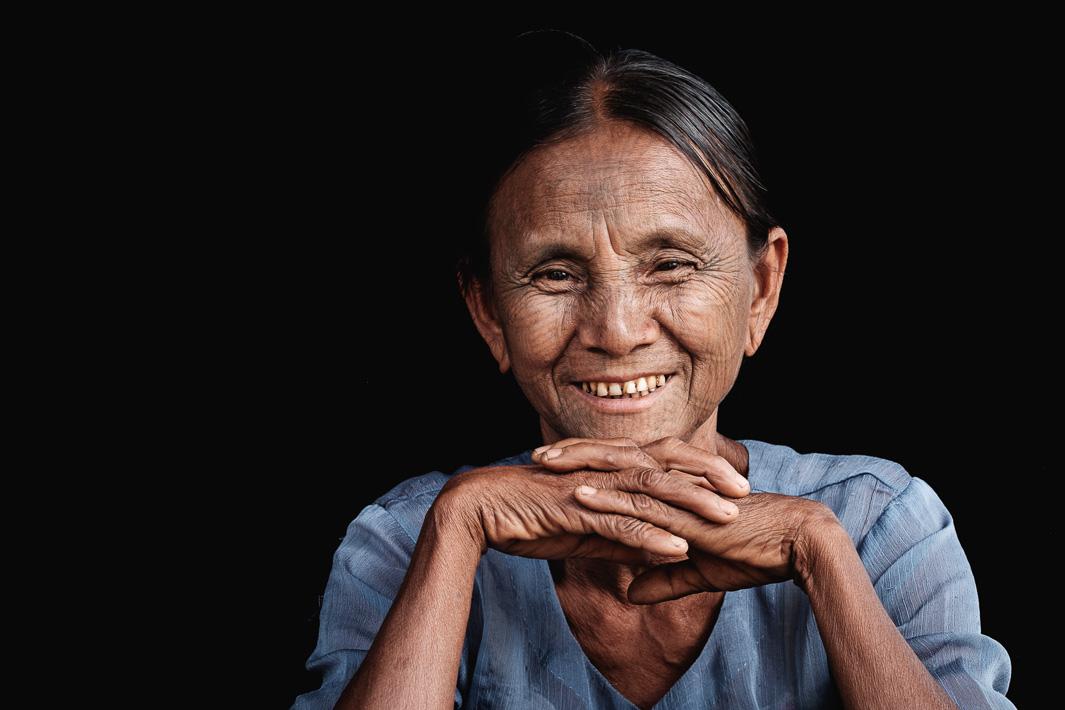When the military gained control of Myanmar, also known as Burma, in the 1960s, it was the beginning of decades of abuse for the ethnic Chin people, a minority of more than a million people spread across dozens of tribes in the western part of the country. According to a 2009 Human Rights Watch report, the Chin suffered “forced labor, arbitrary arrests and detention, torture, religious repression and other restrictions on fundamental freedoms” at the hands of the junta.
The military’s grip on the country had already begun to weaken by 2010, but its reign was long enough to significantly suppress Chin culture and all but erase the old Chin tradition of facial tattooing for women. The exact origin and original meaning of the tradition is unknown, but it’s clear that by the time the practice was banned, the tattoos were considered coming-of-age symbols and marks of beauty. While the practice continued to a much lesser extent after it was outlawed, young Chin women today no longer receive the tattoos. The women who carry them now are likely the last of their kind.
Seoul-based family photographer Dylan Goldby was on vacation in the town of Mrauk U in Rakhine state in June 2015 when he decided to take a boat trip to some nearby villages. That’s where he first encountered members of the Lai Tu Chin tribe, whose remaining tattooed women, the Hmäe Sün Näe Ti Cengkhü Nu, bear a distinctive spider-web pattern of ink on their faces.
Like many foreign visitors before him, Goldby found the women intriguing and began photographing them over the next couple days as he and his guide traveled along the Lay Mro River, beyond the villages the local government designated for tours. Goldby returned to the area in February, this time with videographer Wesley Chang, and visited around 20 villages, photographing more than 100 tattooed women along the way. He also photographed Lai Tu Chin people with cultural artifacts and clothing they’d managed to hide from the military.
“There wasn’t any question of whether I should do it. It was just, ‘You kind of have to do this.’ Compulsion is probably a good word for it,” he said.
Goldby is now raising money on Kickstarter to support his forthcoming self-published book, Hmäe Sün Näe Ti Cengkhü Nu. All proceeds from the book will support efforts to provide clean drinking water and education for the Lai Tu Chin people.
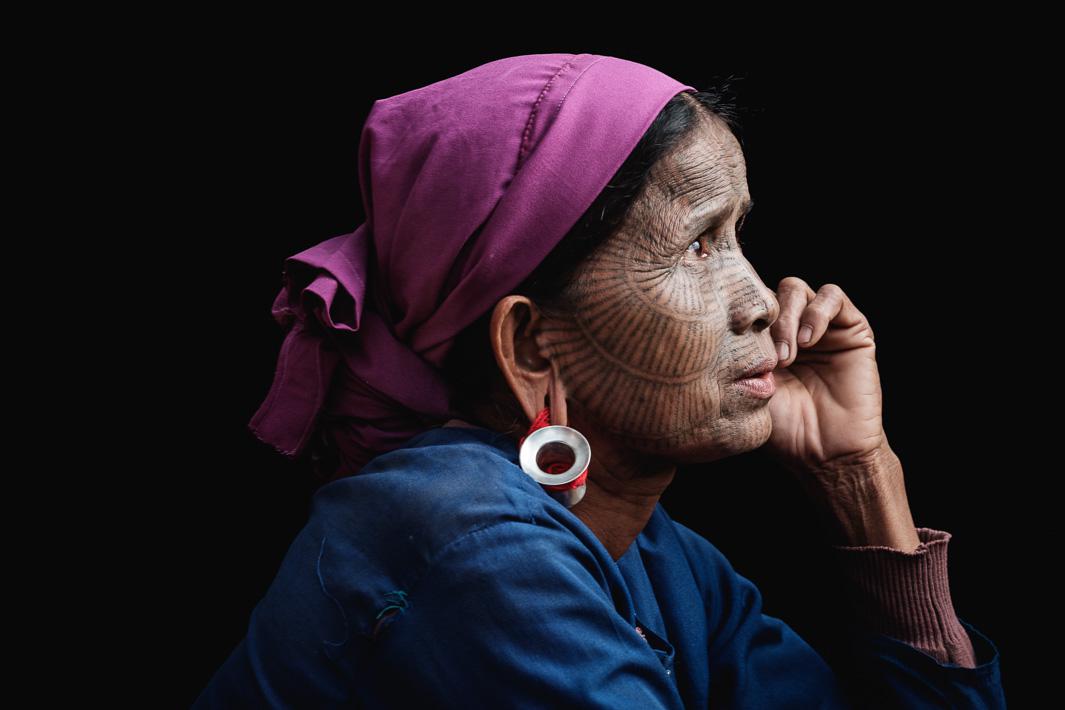
Dylan Goldby
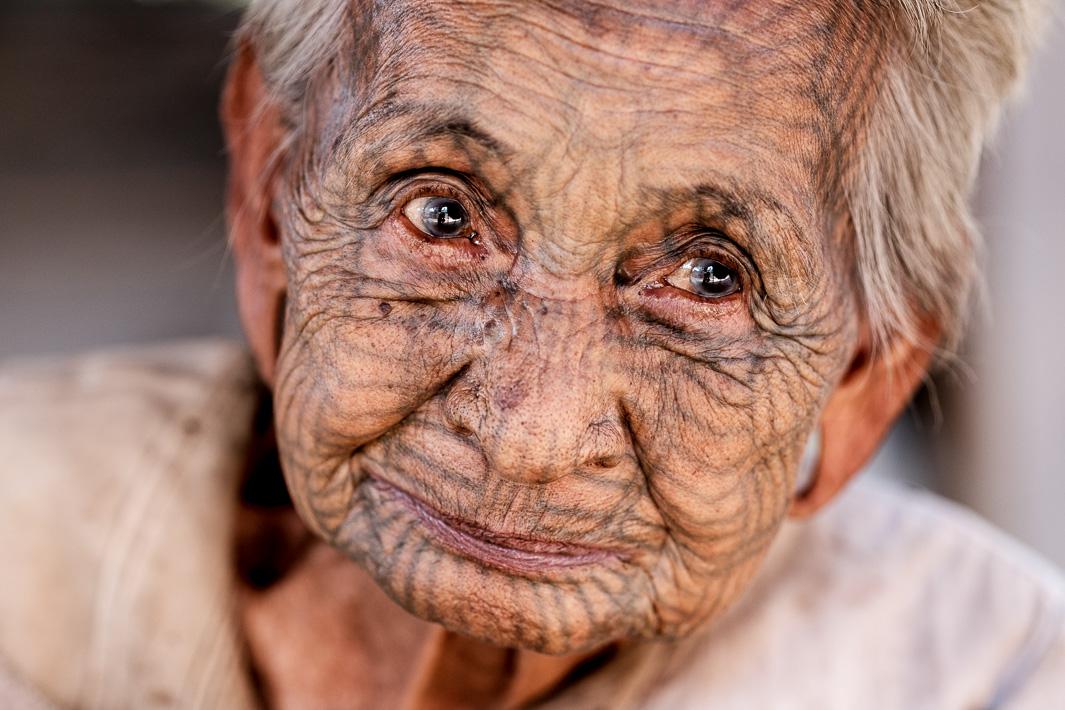
Dylan Goldby
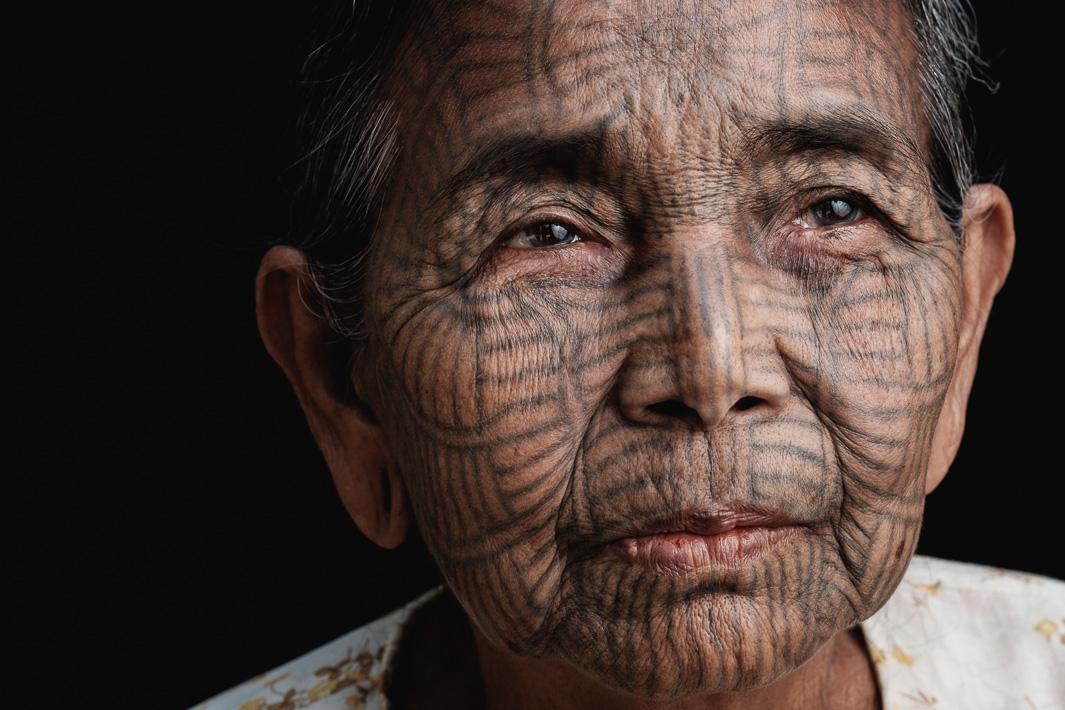
Dylan Goldby
The ink for the tattoos were made with a mixture of natural ingredients—including, Goldby said, the soot from cooking lids—and applied by hand. To capture the detail in even the most faded tattoos, Goldby made close-up portraits against a neutral backdrop. He also made environmental portraits in the villages.
“It was about showing what makes them unique and recording it not only for tourists and other people to see but also for their grandchildren to see,” he said.
You can get a copy of Hmäe Sün Näe Ti Cengkhü Nu by donating to Goldby’s Kickstarter campaign or by ordering from an online store that will open once the campaign ends.
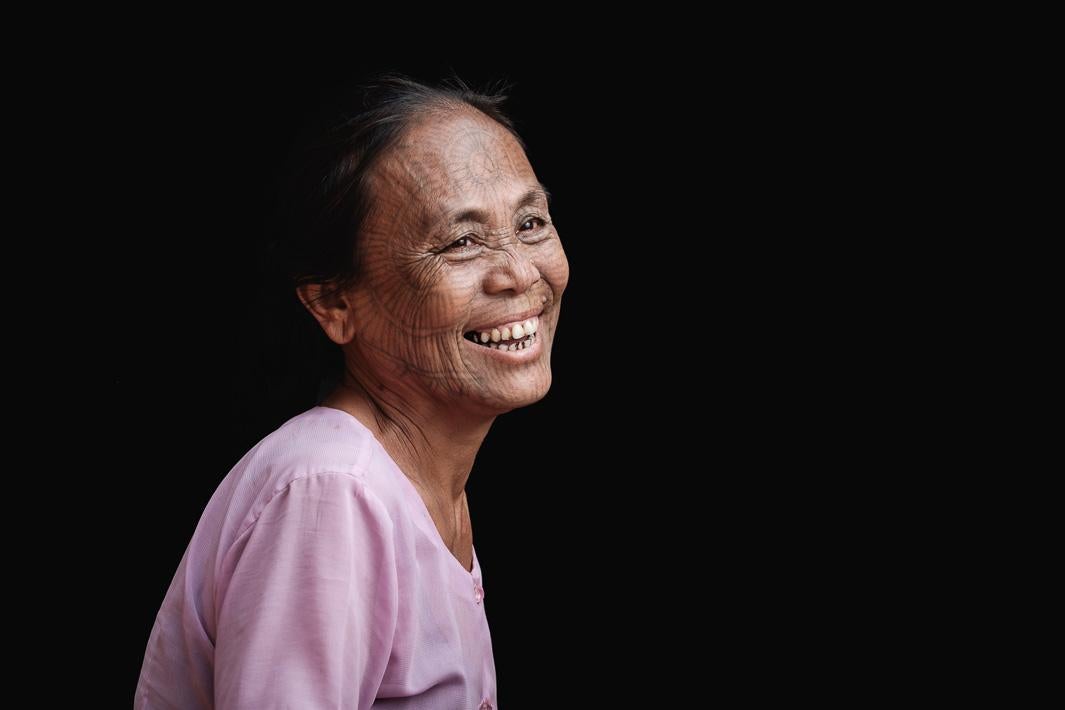
Dylan Goldby
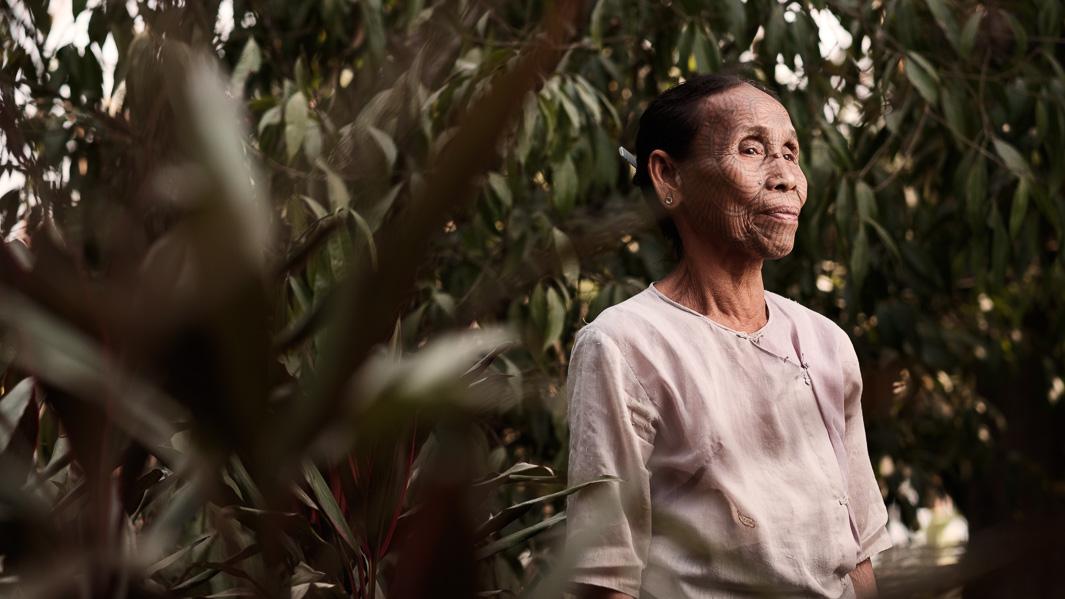
Chre Soe recalls her tattoo being made very clearly. She said that her eyebrows and eyelids were the most painful areas.
Dylan Goldby
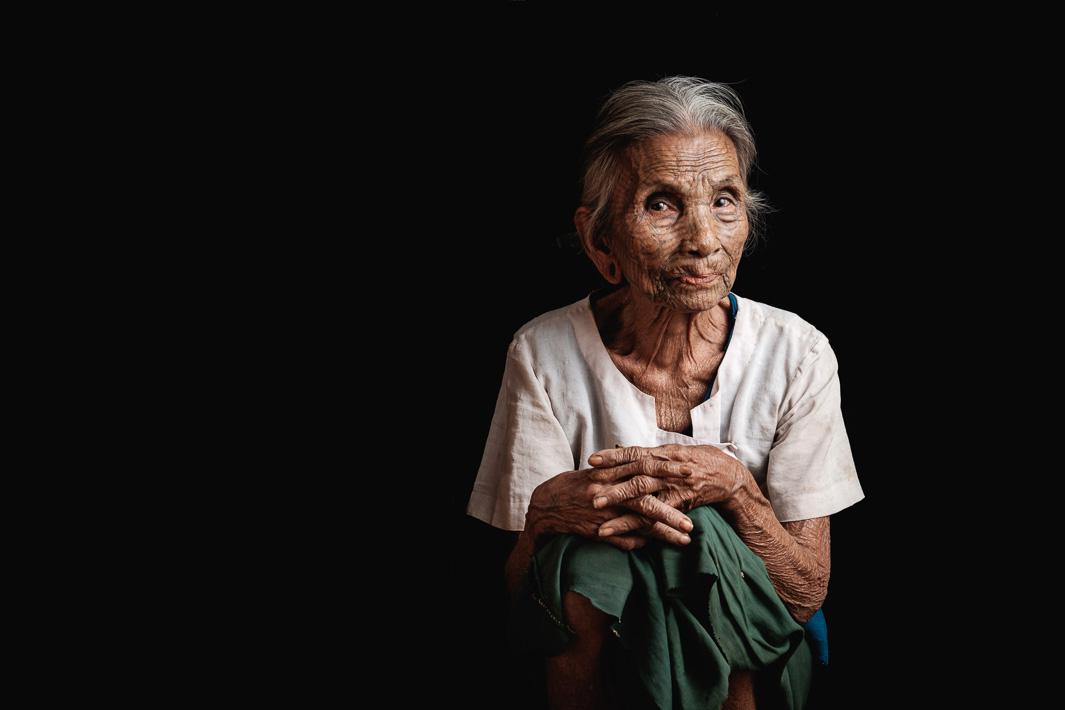
Dylan Goldby
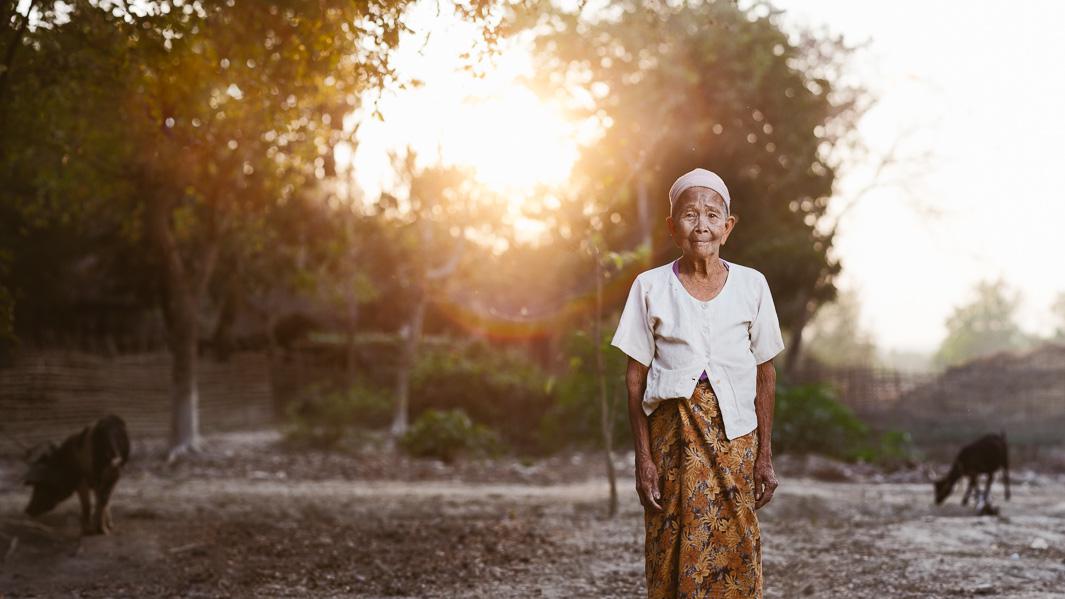
Dylan Goldby
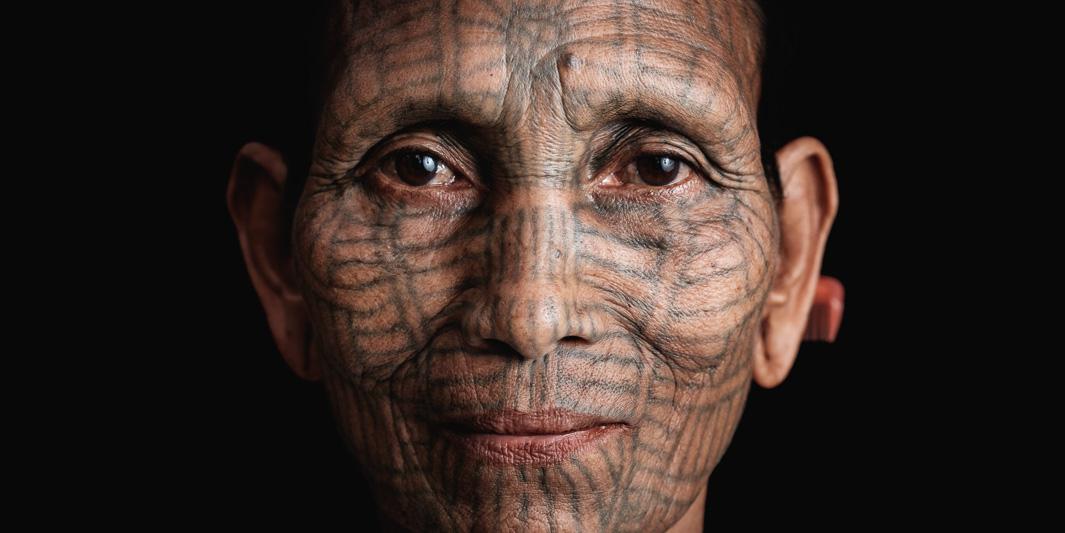
Dylan Goldby
